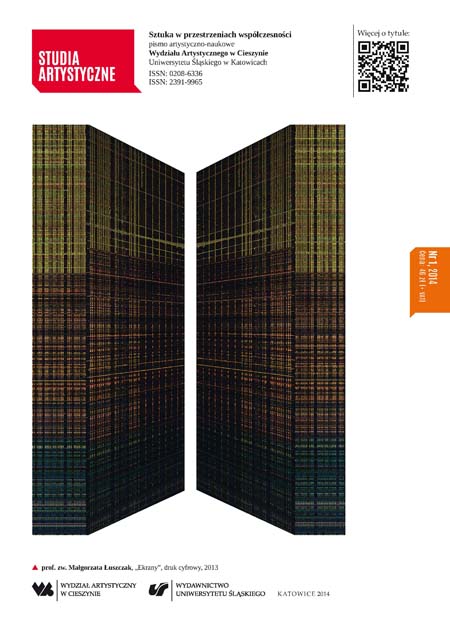Rodzima muzyka ludowa u podstaw wprowadzania dzieci w świat muzyki
Native folk music as the basis for introducing children into the world of music
Author(s): Anna WalugaSubject(s): Fine Arts / Performing Arts
Published by: Wydawnictwo Uniwersytetu Śląskiego
Keywords: nativity; folk music; singing; musical education
Summary/Abstract: The sense of a cultural identity is incredibly important in a contemporary world. Native folk music is one of its manifestations. It is important, though, to get to know it and accept just the way we acquire our native language. A family home should be a special place to make it. A child, listening to adult singing can acquire music, and, hence get to know a musical language. It is important that music comes from a cultural circle in which a child is brought up as only an active acquisition of one’s own native language is a starting point for man’s full participation in the culture, and, thereby, in music. Referring to a folk tradition, the easiest way of acquiring music is making music, that is active playing it. A child is taught singing, and, thus, a native culture through participation. The strongest manifestation of a native culture is a folk song. Nativity is reflected in it in both a content and music layer. It is particularly a musical layer or patterns, form, a musical language and style that prove its idiomatic nature. Native folk music can be a basis of children’s musical education, which is proven by assumptions and curriculum content included in a cycle of a course book and guide for teachers "Rozśpiewana szkoła" (M. Czarnecka, A. Waluga, 1995, 1996, 1997). We well find there a selection of folk songs arranged according to the musical-pedagogical order, as well as a folk calendar. Native folk music is a starting point for getting to know the music of other nations and a broad musical literature, also the one inspired with folklore. The assumption of the curriculum is to teach a musical language when using a relative solmization. The very method facilitates understanding the principles shaping the form of songs, which, later on, translates into understanding complex musical works. Getting to know native folklore is, thus, the basis of child musical education , giving him/her a chance to use a native musical language in order to understand the music of other nations and great musical literature.
Journal: Studia Artystyczne
- Issue Year: 2014
- Issue No: 1
- Page Range: 105-110
- Page Count: 6
- Language: Polish

